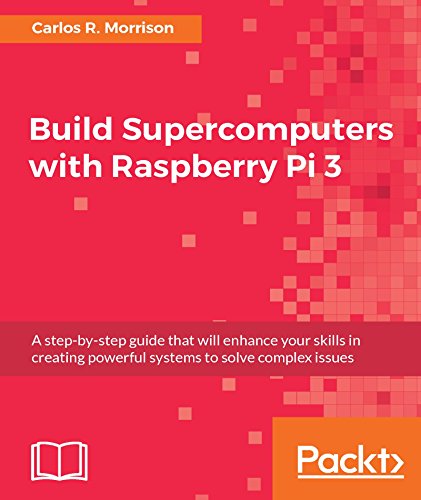

Most ebook files are in PDF format, so you can easily read them using various software such as Foxit Reader or directly on the Google Chrome browser.
Some ebook files are released by publishers in other formats such as .awz, .mobi, .epub, .fb2, etc. You may need to install specific software to read these formats on mobile/PC, such as Calibre.
Please read the tutorial at this link: https://ebookbell.com/faq
We offer FREE conversion to the popular formats you request; however, this may take some time. Therefore, right after payment, please email us, and we will try to provide the service as quickly as possible.
For some exceptional file formats or broken links (if any), please refrain from opening any disputes. Instead, email us first, and we will try to assist within a maximum of 6 hours.
EbookBell Team

0.0
0 reviewsAuthor Carlos R. Morrison (Staff Scientist, NASA) will empower the uninitiated reader to quickly assemble and operate a Pi3 supercomputer in the shortest possible time. The lifeblood of a supercomputer, the MPI code, is introduced early, and sample MPI code provides additional practice opportunities for you to test the effectiveness of your creation. You will learn how to configure various nodes and switches so that they can effectively communicate with each other. By the end of this book, you will have successfully built a supercomputer and the various applications related to it.
What you will learnCarlos R. Morrison was born in Kingston, Jamaica, West Indies. He received a B.S. (Hons) degree in physics with a mathematics minor in 1986 from Hofstra University, Hempstead, NY, and an M.S. degree in physics in 1989 from Polytechnic University, Brooklyn, NY.
In 1989, he joined the NASA Glenn Research Center, Cleveland, OH, as a staff scientist in the solid-state physics branch and, in 1999, he transferred to the structures and dynamics branch. He has authored and coauthored several journal and technical articles associated with aerospace and electromagnetic devices. He holds several patents, including one on the Morrison Motor for which he won the 2004 R&D 100 Award, and software technologies used to control magnetic bearings. He is currently engaged in research associated with room temperature and superconducting reluctance motors, and Simulink Simulation of said motors.
Mr. Morrison is a member of the American Physical Society and the National Technical Association.
Table of Contents